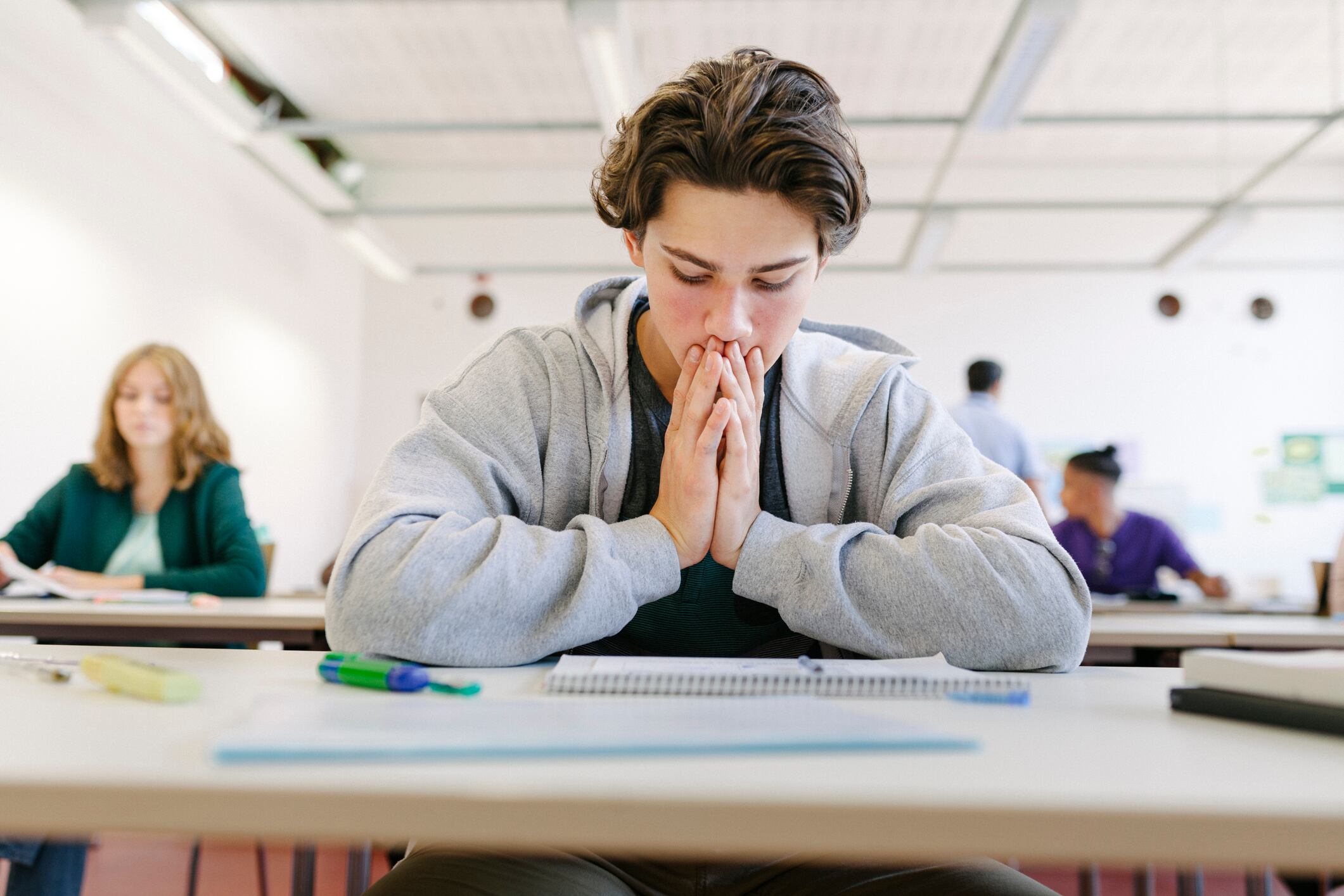New York City schools will once again grade their own students’ Regents exams, a policy that officials scrapped a decade ago amid concerns that educators were systematically nudging scores over the passing cutoff.
The city’s education department informed schools last month that starting this school year, “most Regents exams” that students take will be scored by teachers in their own schools, according to a memo obtained by Chalkbeat. Schools have already begun grading their own Regents exams that were administered last week. Generally, students must pass four or five Regents exams to graduate from high school.
The move represents a significant shift, and comes as state officials are reconsidering the role of Regents exams. For more than 10 years, New York City schools have largely sent their Regents exams to centralized sites where educators from other campuses graded the exams.
Some school leaders praised the change, along with the city’s teachers union, which pressured the city to abandon centralized grading. But some experts worry that teachers will once again unfairly bump up familiar students’ scores. It also represents a departure from state standardized tests administered to students in grades 3-8, which are scored centrally.
“You’re not going to have the same type of layers of bureaucracy that existed in the centralized scoring sites,” Janella Hinds, the teachers union’s vice president for academic high schools, said of the new Regents grading policy. Under that system, teachers were pulled out of their schools and “days were wasted waiting” for exams to arrive or even completely lost on some occasions, Hinds added.
A spokesperson for the city’s education department echoed that sentiment, writing in an email that the process was burdensome for schools that had to proctor exams and manage end-of-year activities while sending staff out of the building to grade exams.
City officials began centrally grading Regents exams in the wake of a 2011 Wall Street Journal investigation that found students were much more likely to earn the exact number of points needed to pass the exam than earn a score just below the cutoff — evidence that teachers gave students a boost to help them pass.
On the state level, officials banned teachers from grading their own students’ exams and ended a policy that required re-scoring exams that were just below the passing threshold. After those policy changes, evidence that educators were manipulating scores vanished, researchers found.
Teachers will continue to be barred from grading their own students’ exams, according to the city’s recent guidance. And certain exams, including physics and chemistry, will continue to be scored centrally. But some experts worry that teachers will still be familiar with the students whose exams they’re grading, which could make it more likely that some will push students over the passing threshold.
“What we observed back when teachers graded their own students’ Regents exams is very clear evidence that they use their discretion to manipulate the Regents scores of students who were close to the threshold for passing the exam,” said Thomas Dee, a professor at Stanford University who co-authored a study about the grading irregularities.
“Barring some design feature, I think it’s likely that that manipulation would return,” Dee said.
Between 2004 and 2010, when schools were allowed to score their own students’ exams, researchers estimated that 6% of all New York City Regents exams were manipulated upward. (There were similar signs of manipulation across the state.)
More Black and Latino students benefited from the manipulations because they were more likely to be just below the passing score. But focusing only on students just below the passing cutoff, researchers found teachers were more likely to give white and Asian American students extra points, raising questions about whether the new policy will lead to similar results.
“Once you have this devolution of testing responsibility,” Dee said, “the outcomes may become capricious in ways that we might find troubling.”
The 2019 study notes that the grading changes do not appear to have been tied to school accountability pressure or the possibility of bonuses, but were rather the “‘cultural norm’ among New York high schools, in which students were often spared any sanctions involved with barely failing exams.” (On some campuses, teacher evaluations are based in part on Regents exam scores.)
Representatives of the city and state education departments did not directly address questions about whether they’re concerned about grade manipulation under the new policy.
Hinds, the teachers union official, said she doesn’t believe teachers will unfairly give students higher scores. “I believe my colleagues have integrity — they do follow the rules. I believe that we do want to see our students succeed and hold them responsible for the work that they’ve done.”
Some school leaders also said they support the change and noted that a small share of Regents exams, particularly those in August, were already graded by their own schools.
Anna Nelson, an assistant principal at Bronx Latin, said educators at the centralized grading sites may not give enough credit if they have different teaching philosophies about how students should approach certain problems.
“There would be times when our kids would get zeroes on problems where they should’ve had a couple points,” she said.
Still, she predicts that schools will return to the practice of bumping up students’ scores if they’re on the edge of passing.
“I think there will be an increase at least in cases where it’s borderline,” she said. “The fact that they need these Regents exams to pass high school makes them so high stakes.”
Alex Zimmerman is a reporter for Chalkbeat New York, covering NYC public schools. Contact Alex at azimmerman@chalkbeat.org.







